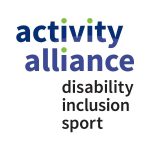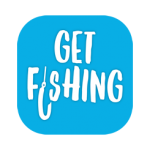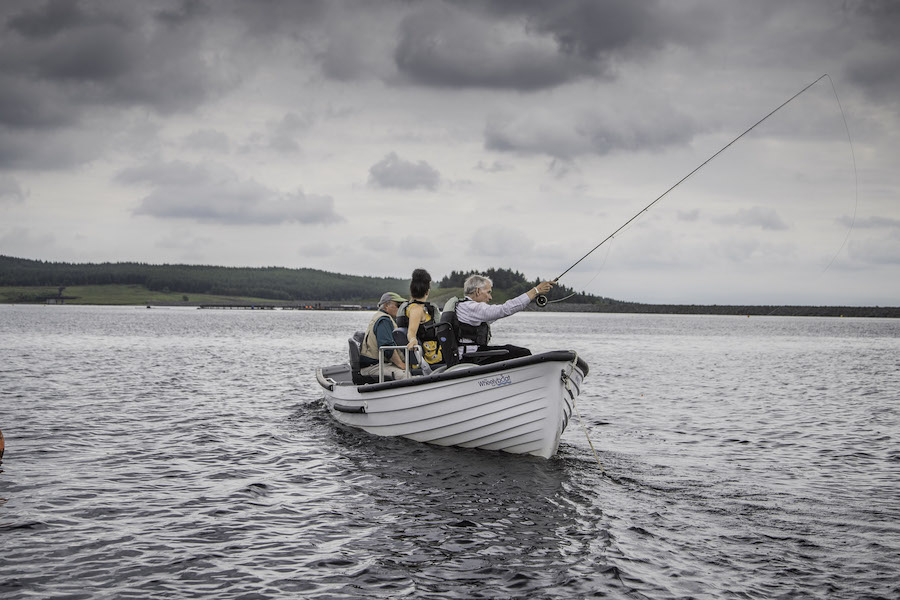
Get Fishing News
Angling supports new research to help non-disabled people’s perceptions and change reality for disabled people
(Photo Credit: Llyn Brenig’s Wheelyboat provides disabled anglers, and wheelchair users in particular, with access to fishing)
New research released by Activity Alliance shines a light on non-disabled people’s attitudes on inclusive activity with disabled people. Although the results show welcoming signs of improvement, ingrained perceptions are creating barriers in changing the reality of disability, inclusion and sport.
“Taking part with disabled people: Non-disabled people’s perceptions” is the result of an online survey, conducted with more than 2,000 non-disabled adults. Focused on the concept of inclusive activity, in which disabled and non-disabled people take part together, it examined respondents’ perceptions and experiences.
The findings present a varied picture, indicating non-disabled people’s perceptions could be preventing them from taking part in this mixed setting.
Chance to change perceptions through sport
The results show the positive opportunity to change perceptions through sporting activity. Three quarters (73%) of non-disabled people were open to the idea of taking part in sport or active recreation with disabled people. Non-disabled people recognised the positive impact taking part in inclusive activities could have on themselves. The top-three benefits mentioned were that they could learn more about disabled people (60%), meet new groups of people (57%) and feel more comfortable around disabled people (44%).
Around a quarter of respondents instinctively associated disabled people with being ‘equal to non-disabled people’ – potentially driven by an awareness of the discrimination that disabled people face. Respondents believed people with mental health problems, behavioural conditions, learning disabilities and physical impairments to be the groups experiencing the greatest prejudice in the UK today.
However, they showed unfounded concern for the negative impact that taking part together may have on the wellbeing of disabled people. Non-disabled people’s top-three concerns were that they may patronise disabled people (53%), disabled people may get hurt (47%) and that non-disabled people may say something inappropriate (37%).
The inconsistency in language used by providers in promoting mixed activities was evident. Around two thirds (67%) of non-disabled people had no prior knowledge of what the term ‘inclusive sport’ means. Three quarters (74%) of them however showed an awareness that inclusive sport is ‘for everyone’.
Unknown experiences with disabled people
General lack of awareness, inexperience and unfamiliarity with disabled people are apparent in the results. Disabled people are a large proportion of our society – one in five people. Yet, just one in seven (14%) non-disabled people were aware that they had taken part in sport or physical activity with disabled people and only half (48%) said they knew a disabled person.
Gap between ambition and reality
This report adds to Activity Alliance’s growing portfolio of research and insight that explores disabled people’s and their influencers’ barriers to and perceptions about being active.
In the Lifestyle Report, findings highlighted a clear mismatch between how disabled people prefer being active and the availability of such opportunities. Here, six in ten disabled people (64 %) surveyed said they prefer to take part in sport and activity with a mix of disabled and non-disabled people. But only five in ten (51%) currently did.
Disabled people also echoed this mixed-setting preference in the Motivate Me Report. This study showed that a great majority of disabled people are more likely to respond to opportunities to get active which tap into the things that matter to them most. This includes building friendships, maintaining health, becoming more independent and progressing in life.
Barry Horne, Activity Alliance’s Chief Executive, said:
“To increase the numbers of active disabled people, we need to see more opportunities that are not only meaningful, but also respond to demand. Whilst we acknowledge not every disabled person wants to take part in a mixed setting, our insight shows most want to be active with their non-disabled friends and family. We can see the impact with our own programmes, like Get Out Get Active, that encourage providers to think wider than segregated sessions. We all need to improve the way we market activities and the wider messages we use. All this leads to more choice, which is surely good for everyone.
“This report flags a number of public misconceptions about disabled people and how that can impact on activity. It can come from a lack of awareness and no open discussions with disabled people. In reality, there is a high chance you are already taking part with disabled people, but it hasn’t come up in conversation. Based on media coverage, the public can often have a stereotypical image of what an active disabled person looks like. But who says you have to be an elite disabled sports person or take part in a set way to be active?”
Clive Copeland, Head of Participation at the Angling Trust agreed with the Activity Alliance report’s findings and found obvious correlation with the Angling Trust’s own experience of participation in its Get Fishing campaign. Clive said: “We are very familiar with unneeded concerns about angling events being non-patronising, worries that disabled people may get hurt while they are fishing or that the non-disabled people at, or organising, Get Fishing sessions might say something inappropriate. These three challenges are specifically addressed in our guidance for Get Fishing event organisers.
I was particularly struck too by the mention of things that matter most to disabled people when they take part in activity: “building friendships, maintaining health and becoming more independent/progressing in life.” Angling is a brilliant way for disabled people to achieve all of these goals. Get Fishing events are all-inclusive, fun, safe and friendly and offer the perfect way for both disabled and non-disabled people and their friends and families to enjoy being outside and active together.
Our recent research found that over a third of anglers have a disability, health issue or impairment and just shows that it’s likely that anyone who comes to one of Get Fishing’s events might not even know that they are fishing alongside someone who has some form of disability.“
Adam Blaze, Strategic Lead Disability, Sport England, added:
“Sport and physical activity has the power to bring together people of different ages, backgrounds and experiences, but too often people’s perceptions of others can prevent this from happening. By breaking down these barriers there is significant potential to reduce the gap in activity levels between disabled people and non-disabled people, resulting in many more friendships and connections, greater social cohesion and more disabled people getting the benefits of being physically active.
“We know that two thirds of disabled people would prefer to take part in sport and physical activity in an inclusive setting alongside both disabled and non-disabled people. Using this research from Activity Alliance, Sport England will continue to lead the sports and physical activity sector to become more inclusive and provide the right opportunities for disabled people to get active and stay active.”
Taking part with disabled people: Non-disabled people’s perceptions responds with three recommendations and required actions for sport, leisure and other sectors. These could help to ensure that non-disabled people feel able and willing to participate alongside disabled people.
1. Increase public awareness of disabled people, especially in relation to being active. This must aim to challenge perceptions and create a more accurate and diverse picture of active disabled people among their non-disabled peers.
2. Embed inclusivity in many more opportunities so disabled and non-disabled people can be active together.
3. Celebrate and share experiences of inclusive activity with representation for all impairment groups.
The full research report is available to download from the Activity Alliance in accessible PDF format.
Read the Executive Summary here here in accessible PDF format (5Mb).
Use #InclusiveActivity to share your thoughts about this report on social media. Find Activity Alliance on Twitter @AllForActivity
Notes to editors:
For more information, please contact:
Courtney Perks, Senior Communications Advisor at courtney@activityalliance.org.uk
Research notes:
Activity Alliance commissioned ComRes to undertake an online survey with 2,066 non-disabled people aged 18+ across England between 24 February and 1 March 2016.
Researchers used ‘implicit association testing to get beyond ‘politically correct’ attitudes to understand underlying, deeply-held perceptions. Answers with higher than average response times were categorised as deliberate, more rational responses, and therefore less deeply-held beliefs.
About Activity Alliance
Activity Alliance is the operating name for the English Federation of Disability Sport (EFDS). We bring organisations and disabled people together to make active lives possible. Collectively, we continue to challenge perceptions and change the reality of disability, inclusion and sport.
The national charity looks to a better future where everyone can enjoy the opportunities available. Established in September 1998, Activity Alliance has a vision that disabled people are active for life. Key areas of expertise include:
-Striving for a more equal society in which disabled people can achieve more through increased opportunities and choice.Enabling organisations to support individual disabled people to be active and stay active for life.
-Working as England’s leading expert voice advocating disabled people’s participation in active recreation.
-A team of Advisors across English regions, who increase connections between a diverse range of partners so more disabled people can access sport and physical activity. These partners include National Governing Bodies of sport, County Sports Partnerships, National Disability Sports Organisations and leisure providers. We also actively engage with Disabled People’s Organisations, local authorities and third sector organisations.
-Developing and rolling-out programmes to improve access to sport and physical activity for disabled people, such as Sainsbury’s Active Kids for All PE training, Inclusive Activity Programme and Get Out Get Active.
-Providing participation opportunities through an events programme.
Actively raising the profile of all disabled sportswomen and sportsmen, as well as increasing the opportunities available for disabled people to take part at all levels.
-Fundraising to provide more opportunities through Activity Alliance and attracting additional funds to sport for disabled people.
-Activity Alliance receives funding from Sport England as its expert partner for disabled people in sport
-More info: www.activityalliance.org.uk
You might also like

Another year of anglers’ data reveals another year of…

Get Fishing Fund – Funded Project: ‘Summerhayes Junior Angling…
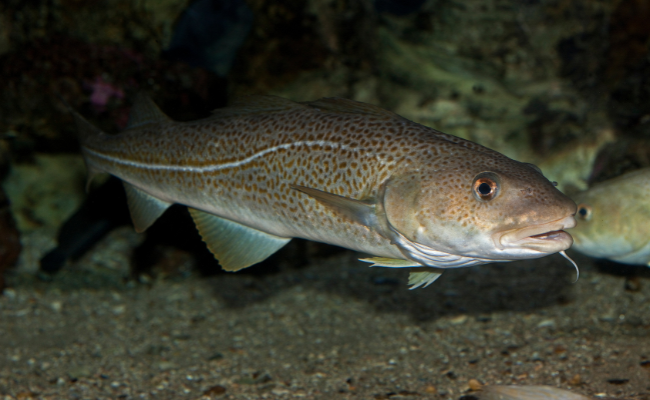
Will the UK-EU Fisheries Deal Deliver for Sustainability and…

The smile says it all! Kayson is hooked! –…
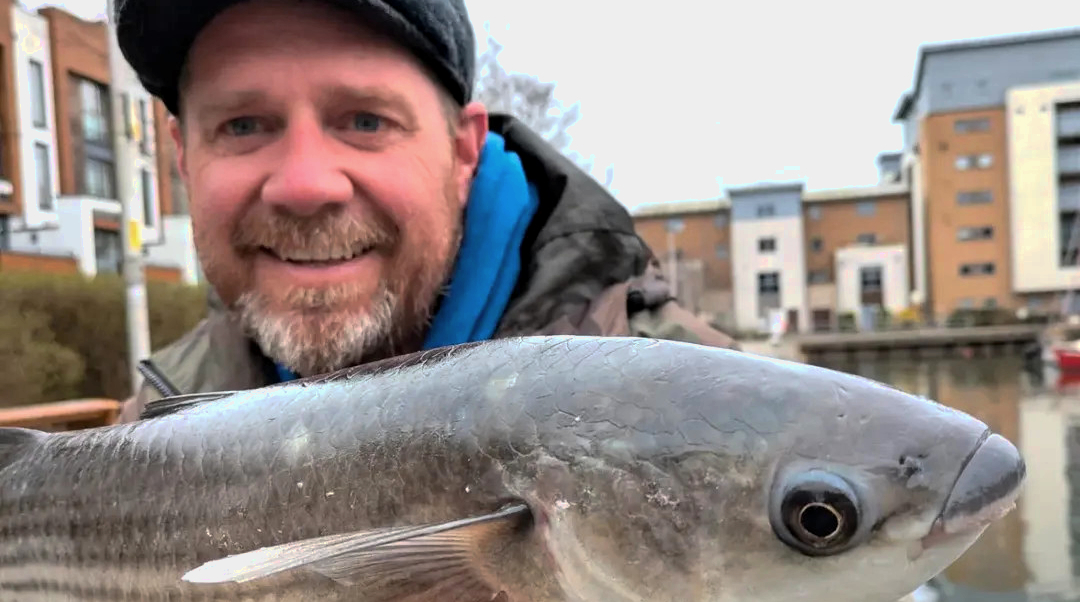
Our Man with a Mullet! Dean Asplin, enjoys a…
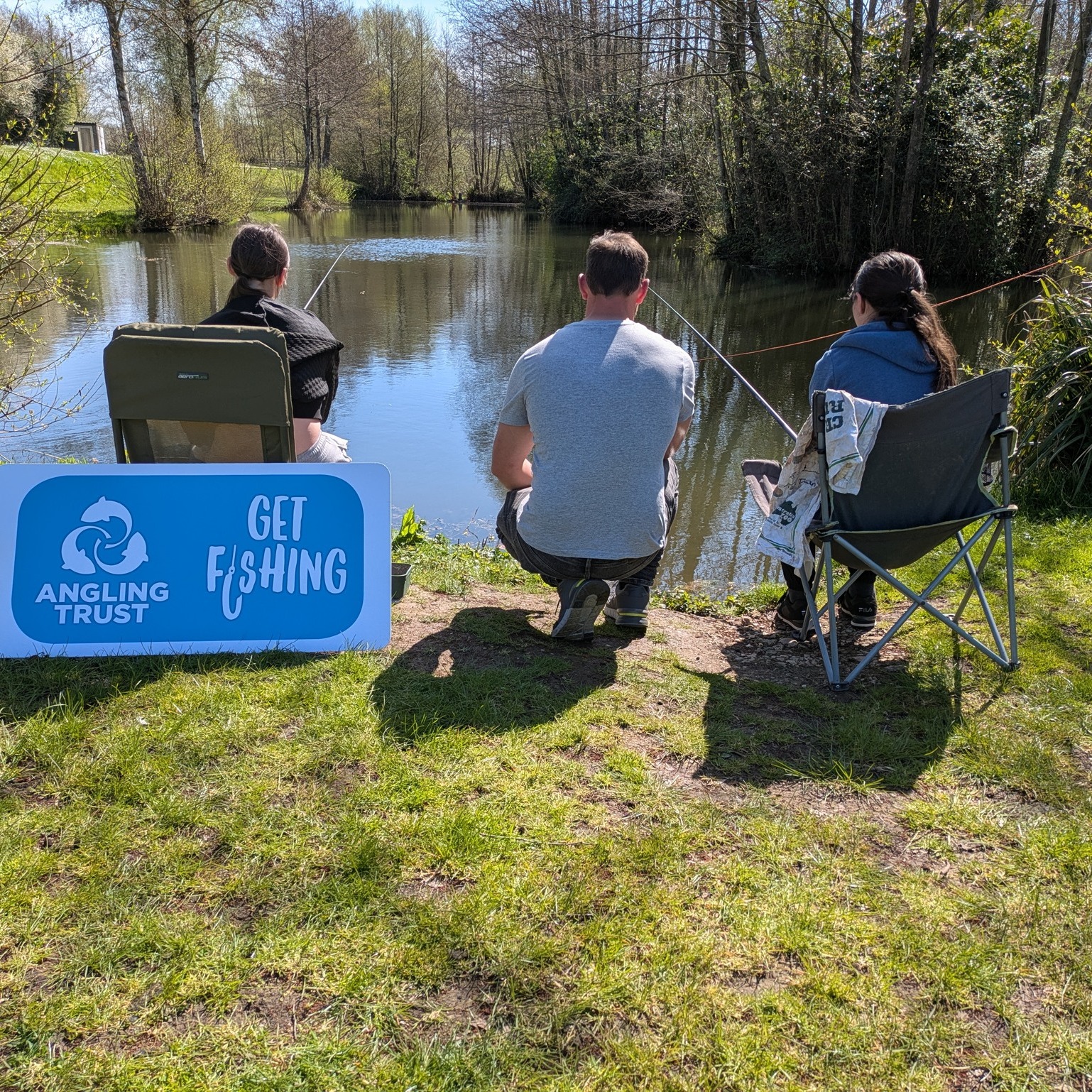
Underdog Crew hosts top draw fishing events with Hintlesham…
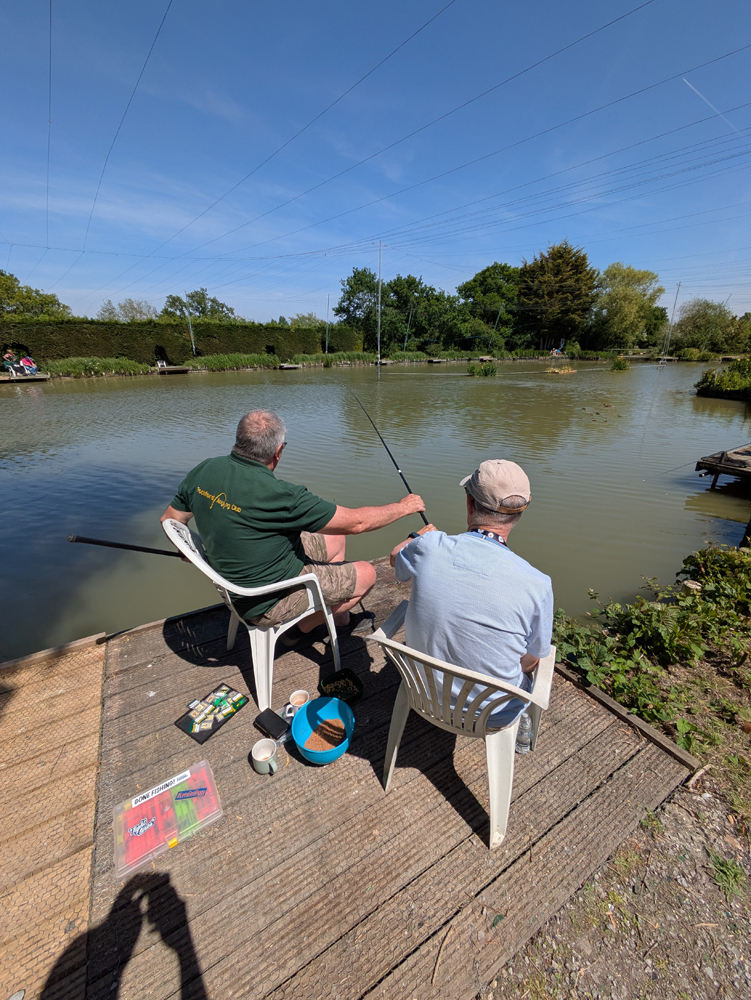
NEW BLOG: Fishing helped my Peaceful Place members with…
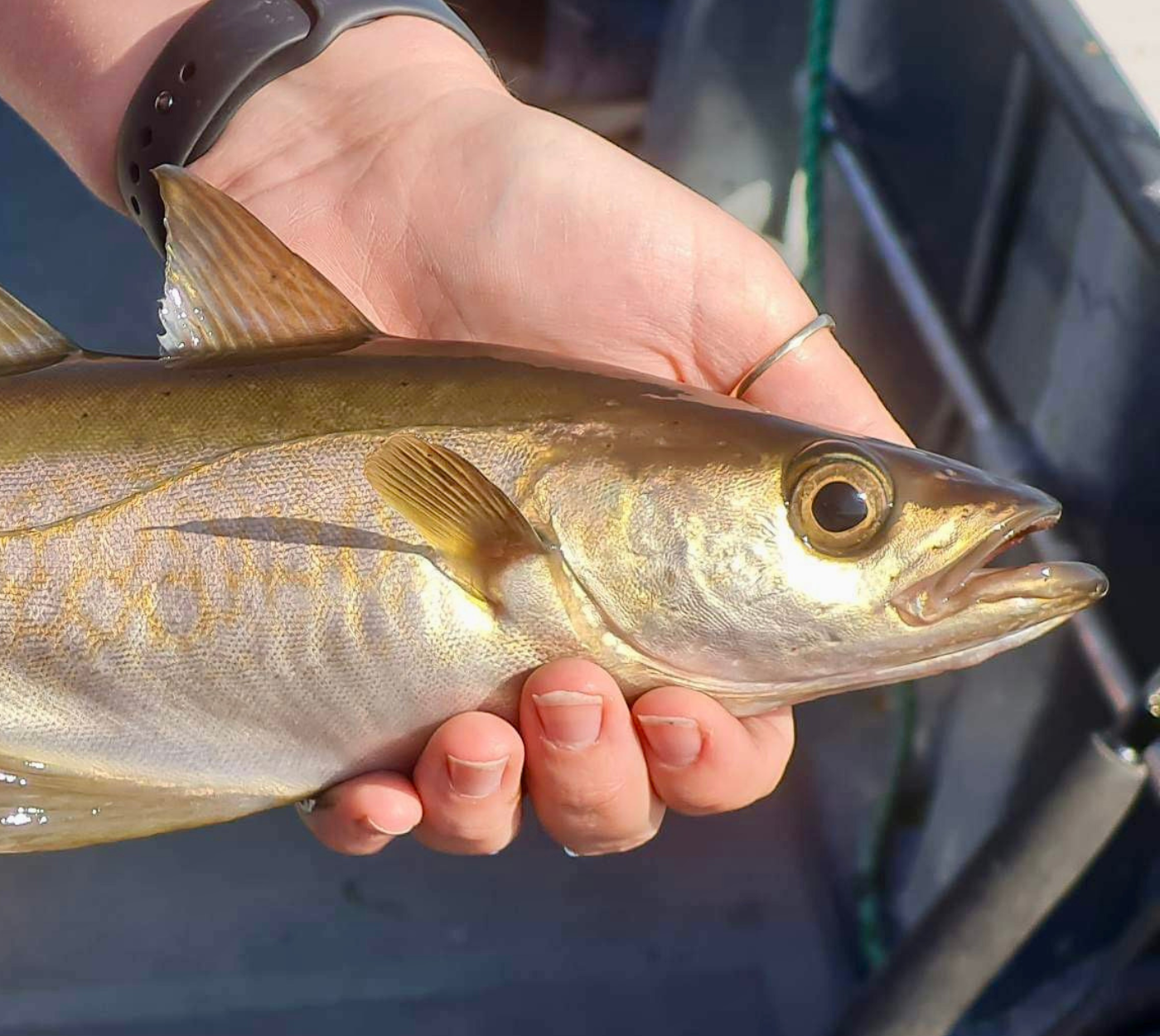
Minister’s Visit Highlights Collaborative Action on Pollack Conservation

Angling Trust calls for radical reforms to end sewage…
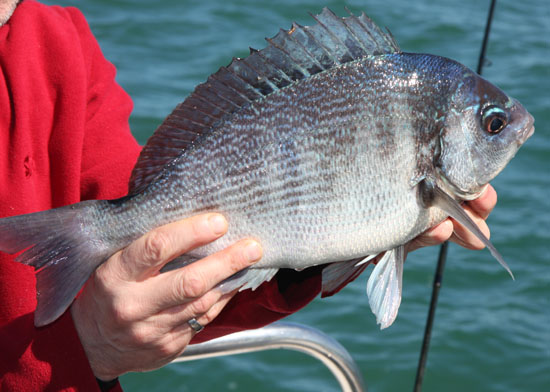
Have Your Say: Shape the Future of Black Bream…
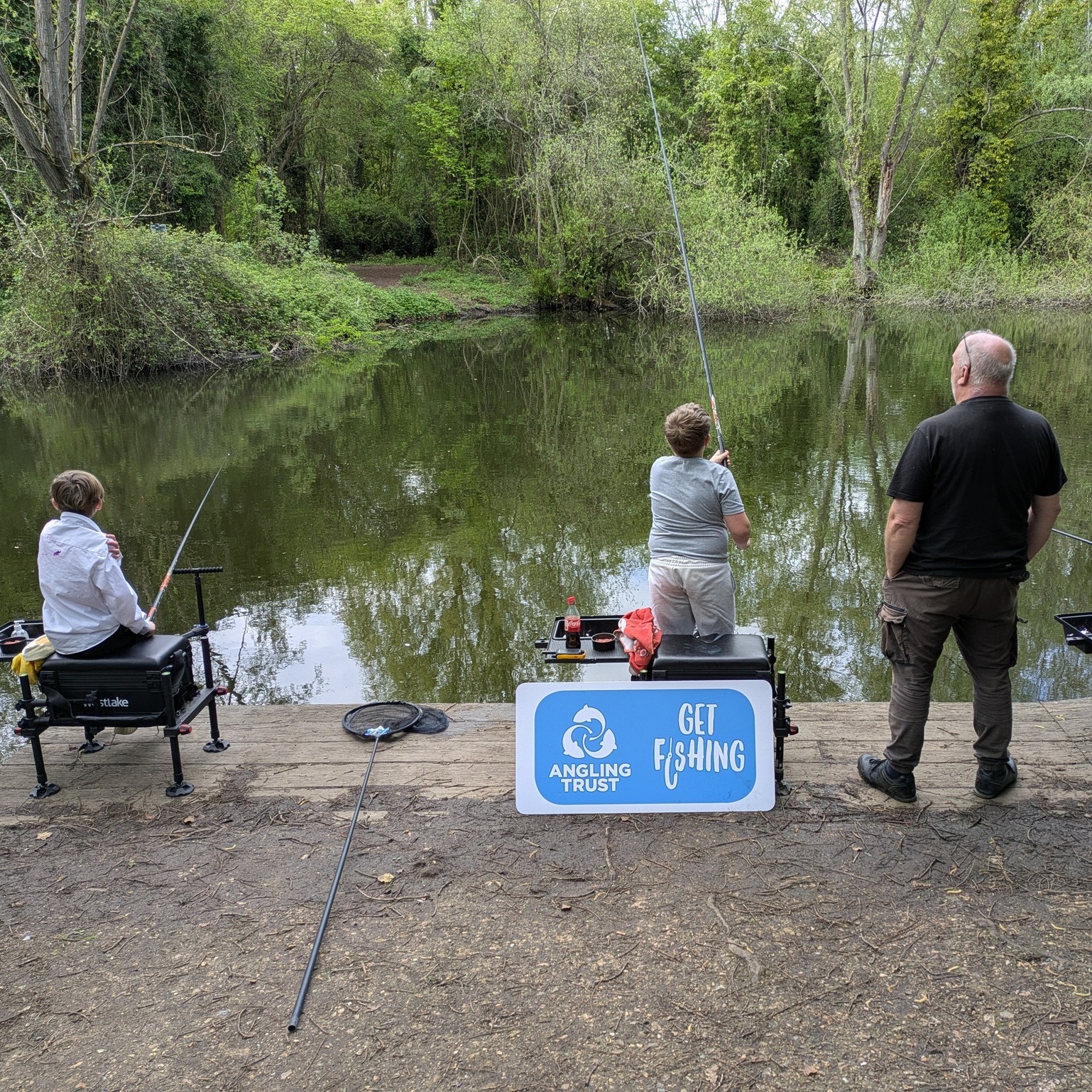
NEW BLOG: Get Fishing Award event for North Cambridge…

Angling Improvement Fund Opens for Nets, Mats & Slings

Another year of anglers’ data reveals another year of…

Get Fishing Fund – Funded Project: ‘Summerhayes Junior Angling…

Will the UK-EU Fisheries Deal Deliver for Sustainability and…

The smile says it all! Kayson is hooked! –…

Our Man with a Mullet! Dean Asplin, enjoys a…

Underdog Crew hosts top draw fishing events with Hintlesham…

NEW BLOG: Fishing helped my Peaceful Place members with…

Minister’s Visit Highlights Collaborative Action on Pollack Conservation

Angling Trust calls for radical reforms to end sewage…

Have Your Say: Shape the Future of Black Bream…

NEW BLOG: Get Fishing Award event for North Cambridge…

Angling Improvement Fund Opens for Nets, Mats & Slings

Another year of anglers’ data reveals another year of…

Get Fishing Fund – Funded Project: ‘Summerhayes Junior Angling…

Will the UK-EU Fisheries Deal Deliver for Sustainability and…

The smile says it all! Kayson is hooked! –…

Our Man with a Mullet! Dean Asplin, enjoys a…

Underdog Crew hosts top draw fishing events with Hintlesham…

NEW BLOG: Fishing helped my Peaceful Place members with…

Minister’s Visit Highlights Collaborative Action on Pollack Conservation

Angling Trust calls for radical reforms to end sewage…

Have Your Say: Shape the Future of Black Bream…

NEW BLOG: Get Fishing Award event for North Cambridge…










